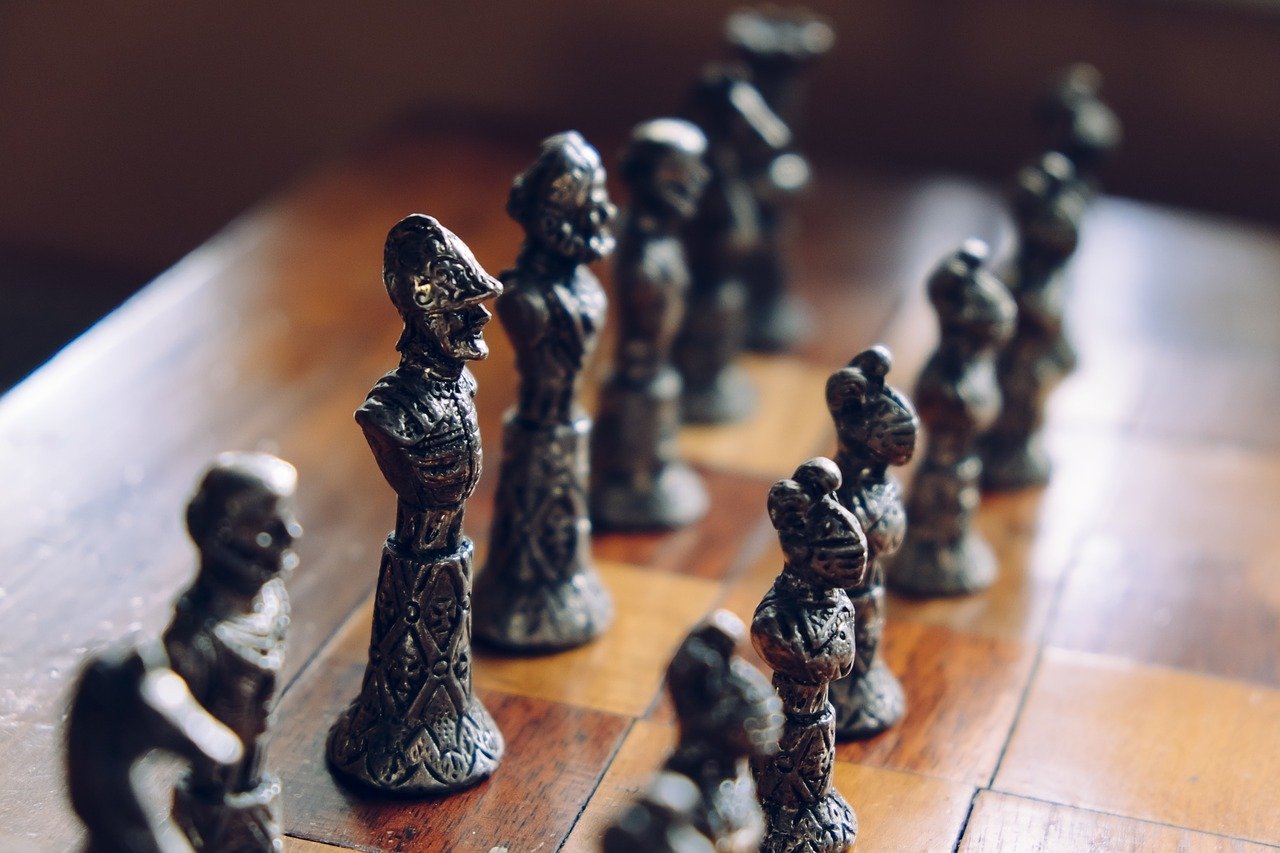
Competition has been ingrained in human society since the beginning of time. Originating from the latin words competere (to strive for) and competitio (rivalry), the word, competition, conjures images of sports, debates, the corporate ladder. It is often also equated with greed, envy, gluttony and held in stark contrast to the ideals of cooperation. The movie Varsity Blues shows the dark side of competition on a Texas high school football team. We are told that it can be damaging for our children and it is unhealthy. Cooperation is preached as the golden ideal and the answer to the evils of competition. Personally, I believe that competition can be healthy, it can be uplifting and that competition and cooperation are not mutually exclusive.

In this series, I am going to be highlighting ways to win competition. I will be drawing from classic works like Sun Tzu's Art of War and Machiavelli's The Prince, and from modern works like The 48 Laws of Power by Robert Greene and Saul Alinsky's Rules for Radicals to name a few. I will also be pulling from philosophers like Thomas Hobbes and John Locke. Some of these works are controversial, but there is a lot of wisdom to be gleaned from their pages and much of it is very applicable to everyday life.
My Assumptions
Over the course of writing this series, I will be operating under a few assumptions. You can certainly disagree with these assumptions, but they are what I will be basing my current and future work on.

Competition is a Reality:
There will always be some form of competition in your life. Whether in your career, social life, or family life. It is almost unavoidable. In fact, much of competition goes unnoticed. For example, when my wife and I began dating, she and I were participating in a competition. There were other potential matches available to each of us, but we each won the competition for the other's attention and as a result, we are now married. In your career, whether you like it or not, and whether it is apparent or not, you are competing. Your boss (or the company, entity, or customer you provide a product or service for) chose you over all the other available options. Competition in our modern society is not solely restricted to human v. human anymore. Now we compete against various forms of technological distractions or enticements. These distractions and enticements compete against each other. Competition is everywhere.

Competition Creates Excellence:
We are not all special snowflakes. No matter how hard I try, I will never be an NBA star, or be featured on "Dancing With the Stars". A man that is born with an average IQ will never beat Christopher Michael Langan in a test of intelligence. A man born with a physical handicap will never beat Usain Bolt in a foot race. That same man with average IQ; however, may be a much harder worker, or better at socializing than others and will find success competing in those realms. The man with the physical handicap may be a brilliant artist or have an excellent mind for engineering. Through competition, we discover the things that we excel at and the things that we don't. My contribution to society would be much lower if I spent all my time and effort trying to be an NBA basketball player. Competition causes people to rise to their highest and best use in society.

Competition is not Inherently Evil:
I am not implying that competition has not led to acts of evil, and when taken too far does not cause damage; however, these issues arise from an excess or a perversion of a mechanism that, I believe, is common to any society. The biggest problem with competition in many people's minds, is that there is always a loser. We feel bad for the loser and root for the underdog. When we do this, we make the mistake of not giving credit to the winner where it is due. Our warped sense of fairness, more than ever these days, cries that the winner must have cheated, or had an unfair advantage, or exploited some loophole. The truth is, because competition is inevitable, somebody will always come out on top. There will always be a smarter investor, a faster athlete, and a better writer. The flip side, is that there will always be a loser. This is a fact of human interaction and society. So, therefore, the existence of a winner and loser and the incentive to be the winner are not evil in and of themselves. The evil occurs in the process and motivations of the competitors and is a product of the participant, not the ideal.

Conclusion
Operating under the above assumptions, the aim of this series is to teach readers how to think intelligently about competition and compete better. There are timeless principles and strategies that can be applied to any form of competition to increase the odds of winning. Over the coming weeks and months, we will be looking at these principles in depth and discovering how to use them to our advantage.
I am looking forward to the constructive debate and discussion that this series will bring and as always am available to answer any questions or concerns.
If you like my work and want to follow the series, please follow me and upvote my content!
Additionally, if you haven't already, please participate in my anonymous survey of Steemit users: The first survey in my Steemians Talk Survey Series. Over the next few weeks, I will be publishing the results and, later in the series, will conduct more surveys to dig deeper!
